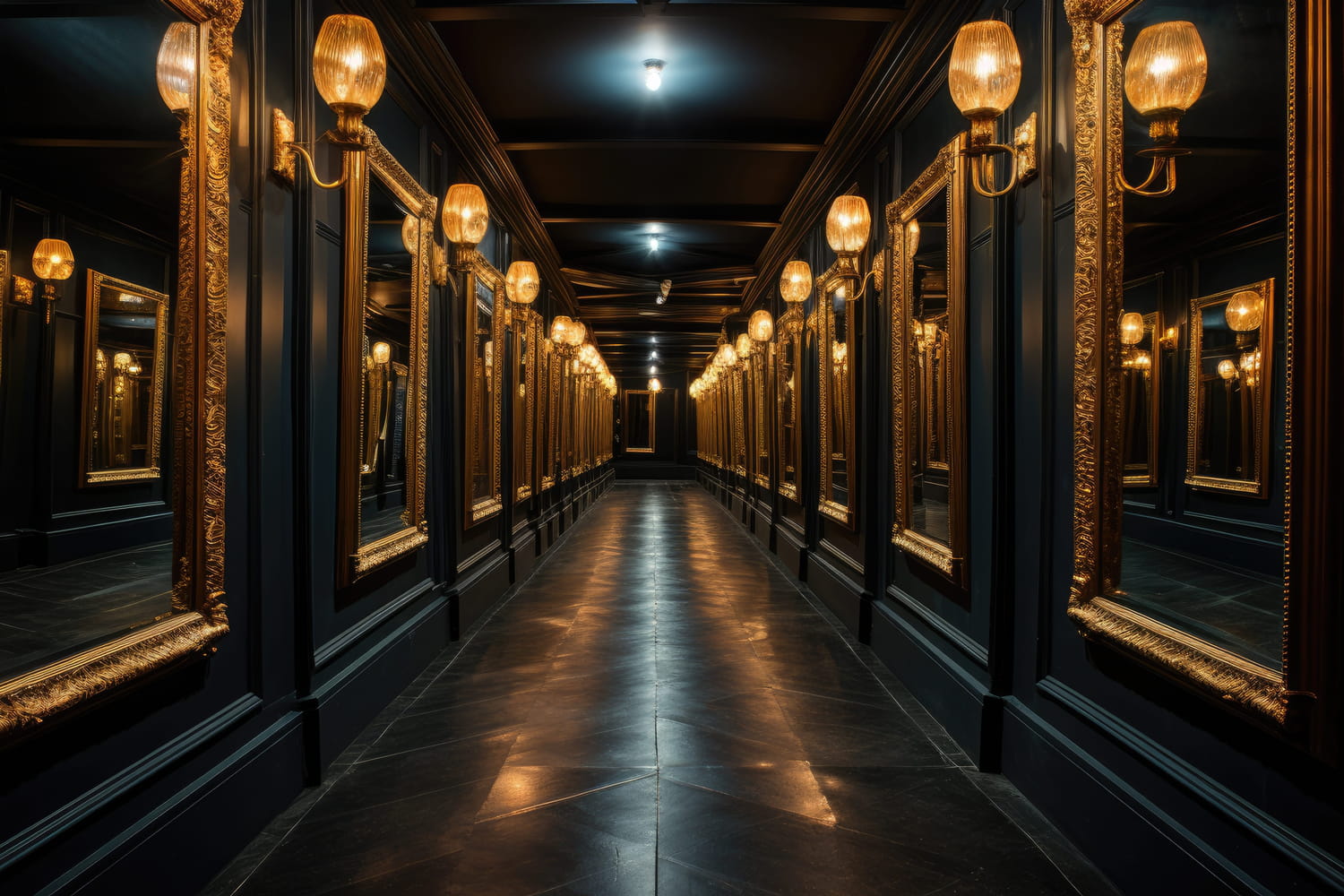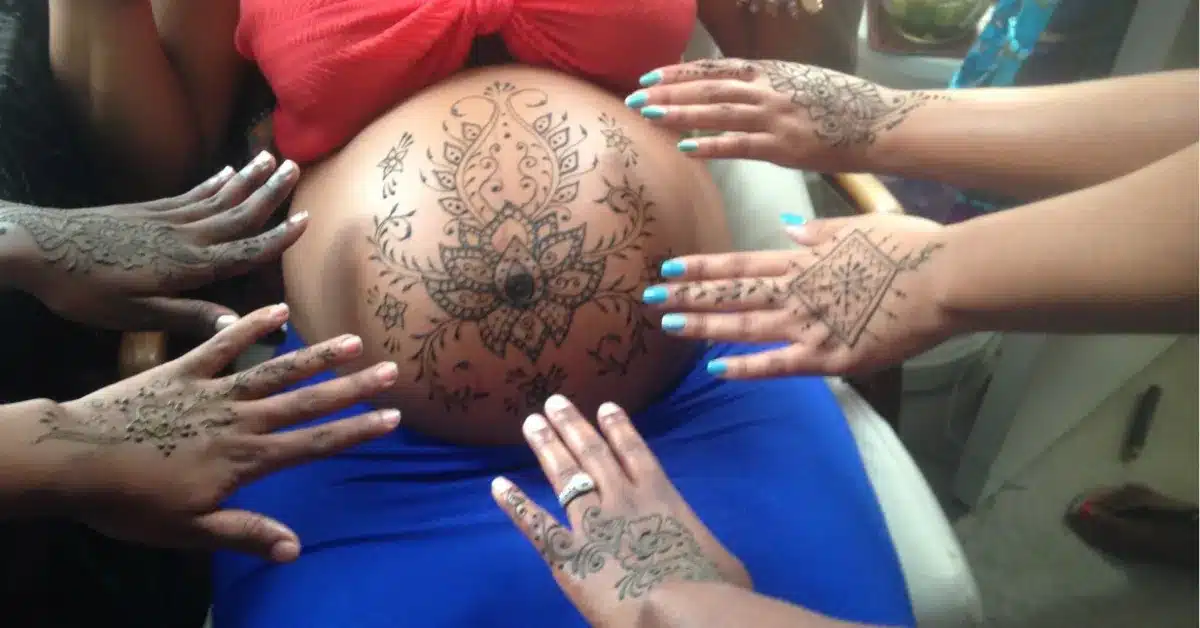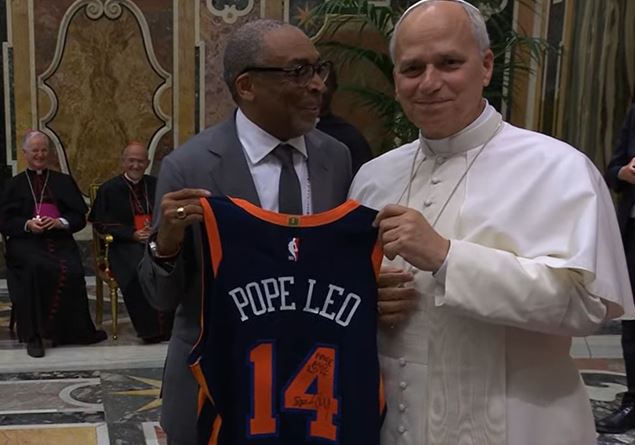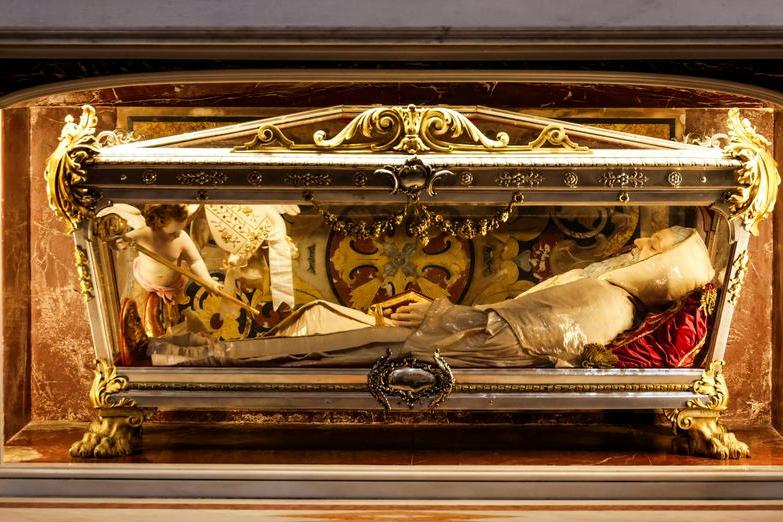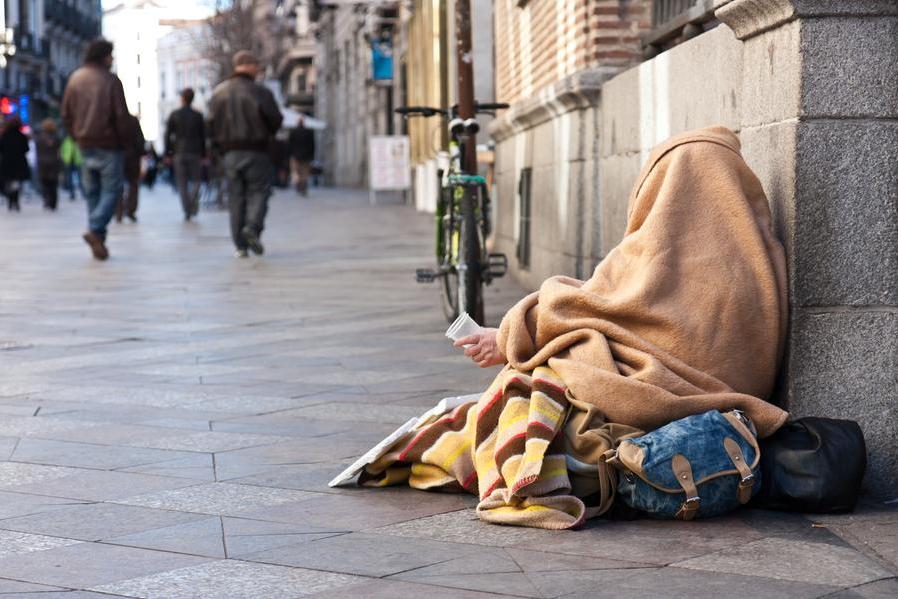“Do not be afraid to confront the fears of the world” and continue to be “pilgrims of the imagination” and “artisans of hope”. Pope Leo meets actors, directors and cinema workers and asks them to continue to be “witnesses of hope, of beauty, of truth”, 130 years after the invention of the seventh art. With your work, he says, you can “recover the authenticity of the image to safeguard and promote human dignity, it is in the power of good cinema and of those who are its authors and protagonists”. And, without exploiting pain, cinema can tell the world’s wounds: «Violence, poverty, exile, loneliness, addictions, forgotten wars are wounds that ask to be seen and told. Great cinema does not exploit pain: it accompanies it, investigates it. This is what all the great directors have done. Giving voice to the complex, contradictory, sometimes dark feelings that live in the heart of human beings is an act of love. Art must not escape the mystery of fragility: it must listen to it, it must know how to pause before it. Cinema, without being didactic, has within itself, in its authentically artistic forms, the possibility of educating the gaze.”
And if it is true that “cinema is a young, dreamy and somewhat restless art, even if it is now a century old”, initially a sort of “play of light and shadow, to entertain and impress”, it soon became an art capable of “manifesting much deeper realities”, an expression “of the will to contemplate and understand life, to talk about its greatness and fragility, to interpret its nostalgia for the infinite”.
Again Pope Leo added that «it is beautiful to recognize that, when the magic lantern of cinema lights up in the darkness, the gaze of the soul simultaneously lights up, because cinema knows how to associate what seems to be merely entertainment with the narration of the spiritual adventure of the human being. One of the most precious contributions of cinema is precisely that of helping the spectator to return to himself, to look at the complexity of his own experience with new eyes, to see the world again as if it were for the first time and to rediscover, in this exercise, a portion of that hope without which our existence is not full. It comforts me to think that cinema is not just moving pictures: it is putting hope in motion!»-
Leone says he is also worried about the erosion of cinemas. Those places where «in the darkness and silence, the eye becomes attentive again, the heart allows itself to be reached, the mind opens to what it had not yet imagined. In fact, you know that your art requires concentration. With your works, you dialogue with those seeking lightness, but also with those who carry a restlessness within their hearts, a question of meaning, of justice, of beauty. Today, we live with digital screens always on. The flow of information is constant. But cinema is much more than a simple screen: it is a crossroads of desires, memories and questions. It is a sensitive research where light pierces the darkness and the word meets silence. In the unfolding plot, the gaze is educated, the imagination expands and even pain can find meaning.”
For this reason, cinemas, like theatres, «are the beating hearts of our territories, because they contribute to their humanization. If a city is alive it is also thanks to its cultural spaces: we must inhabit them, build relationships, day after day. But cinemas are experiencing a worrying erosion that is taking them away from cities and neighborhoods. And there are many who say that the art of cinema and the cinematic experience are in danger. I invite the institutions not to give up and to cooperate to affirm the social and cultural value of this activity.”
We must escape «the logic of the algorithm tends to repeat what “works”» to follow «the art that opens up to what is possible. Not everything has to be immediate or predictable: defend slowness when needed, silence when it speaks, difference when it provokes. Beauty is not just escape, but above all invocation. Cinema, when it is authentic, does not only console: it challenges. It calls by name the questions that live within us and, sometimes, even the tears that we didn’t know we had to express.”
Leone, in the Jubilee year, calls cinema artists to be “pilgrims of the imagination, seekers of meaning, narrators of hope, messengers of humanity”. A journey that «is not measured in kilometers but in images, words, emotions, shared memories and collective desires. It is a pilgrimage into the mystery of the human experience that you cross with a penetrating gaze, capable of recognizing beauty even in the folds of pain, hope within the tragedies of violence and wars.”
He quotes Paul VI who, in 1965, meeting the artists, told them: «If you are friends of true art, you are our friends», recalling that «this world in which we live needs beauty so as not to sink into despair». And he makes that message his own: «I want to renew that friendship, because cinema is a laboratory of hope, a place where man can look at himself and his own destiny again», says Prevost. Asking those present to make “cinema an art of the Spirit”. Finally, it calls for teamwork because «the making of a film is a community act, a choral work in which no one is self-sufficient. Everyone knows and appreciates the mastery of the director and the brilliance of the actors, but a work would be impossible without the silent dedication of hundreds of other professionals: assistants, runners, prop masters, electricians, sound engineers, prop makers, make-up artists, hairdressers, costume designers, location managers, casting directors, directors of photography and music, screenwriters, editors, effects workers, producers…». And, he adds, «I apologize if I forgot anyone, but there are so many of you. Every voice, every gesture, every skill contributes to a work that can only exist as a whole.”
Therefore, «in an era of exasperated and conflicting personalities, you show us how to make a good film it is necessary to use one’s talents. But everyone can make their particular charisma shine thanks to the gifts and qualities of those who work alongside them, in a collaborative and fraternal climate. May your cinema always remain a meeting place, a home for those seeking meaning, a language of peace. May it never lose its ability to amaze, continuing to show us even a single fragment of the mystery of God. May the Lord bless you, your work and your loved ones. And may I always accompany you on your creative pilgrimage, so that you may be artisans of hope.”
